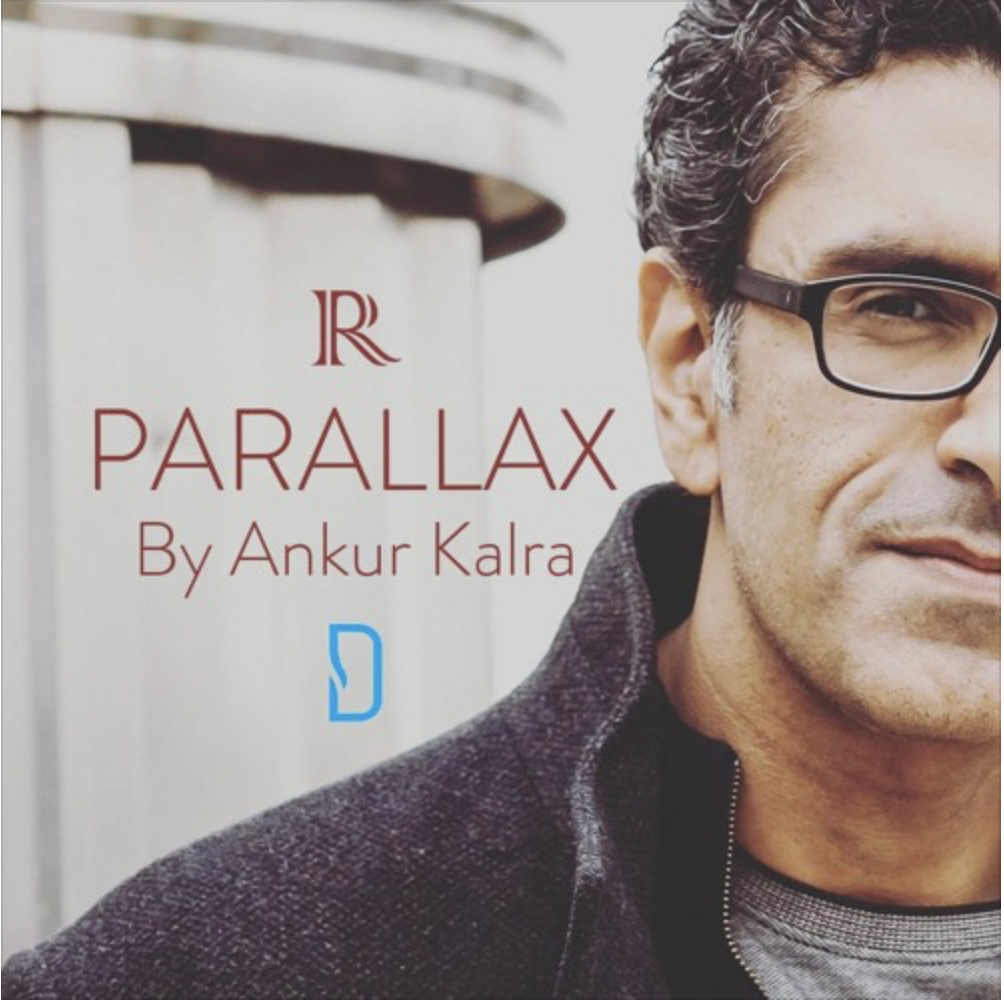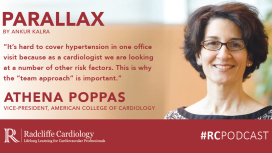
In this week’s Parallax, host Ankur Kalra is joined by Charles (Chuck) Simonton, Vice President and Chief Medical Officer of Abiomed. Chuck talks about how his father’s leadership and service as a Methodist minister inspired him to become a doctor. He recalls the dawn of interventional cardiology: the birth of angioplasty and stenting. Drawing from his experiences as a trialist who worked with some of the most influential minds, he offers practical tips to young doctors. Finally, Ankur asks Chuck about the Impella device controversy and the recent decision of Abiomed to accelerate their clinical research.
How should you start building a research programme? What are Chuck Simonton’s thoughts on the relationship between doctors and the industry? What is Chuck’s message to young cardiologists?
Tune in to listen to this week’s episode of Parallax.
Hosted by @AnkurKalraMD. Produced by @RadcliffeCARDIO.
Submit your questions to Ankur via: podcast@radcliffe-group.com.

During her interventional cardiology fellowship, Dr Baron became fascinated by the implementation of novel technologies. She earned her degree in Clinical Epidemiology and spent a year working at the FDA’s Device Evaluation unit.
In 2019 Dr Baron presented the results of her late-breaking trial, COAPT. Ankur invites Suzanne to discuss the economic analysis of the study and to give a short introduction to cost-effectiveness analysis. Suzanne provides an overview of the trial and they talk about the importance of understanding the value and benefits of new devices from both the patient and the health-economic point of viewpoint.







Dr Gerdisch shares insights into his research on rigid sternal fixation and enhanced recovery protocols, which have shown promising results in postoperative pain management and patient recovery.




They discuss the importance of preventative medicine, their experience of reducing hypertension with non-pharmaceutical and pharmaceutical methods, and the significance of the integrated “team approach” when treating comorbid conditions such as hypertension. Athena also shares her thoughts on cardiologists’ responsibility to shape their patients’ lifestyle choices.
Hosted by @AnkurKalraMD. Produced by @RadcliffeCardiology.

Chest pain is one of the most common reasons for an emergency room visit in the US, with almost 6 million ER visits annually, yet there is no consensus on how to compare the results from various hscTn assays. Tune in to hear Santiago outline the advantages and limitations of using hscTn as a standard biomarket to evaluate patients with suspected ACS in the ER.
Hosted by @AnkurKalraMD. Produced by @RadcliffeCardiology.






